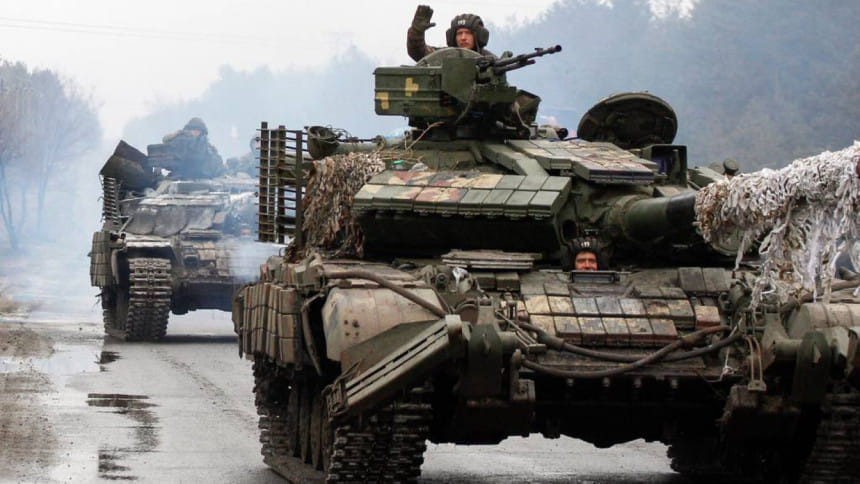Has dominance via hard power run its course?

Global power structure has never been a constant. Long gone are the days of using stones and axes, horses and swords, bows, arrows and catapults to project power. Long gone are the days of the Romans, Genghis Khan, Tughluks, Alexander and Taimoor Lang.
Today, dominance is defined by access to new technologies, fifth or sixth generation gravity defying fighter jets, nuclear arsenal, stealth submarines, laser guns, killer satellites, hypersonic nuclear warhead capable cruise missiles.
Dominance is not just the outcome of the desire to ensure national security and pride, it is also the result of greed of profit from the huge arms industry.
War games bring financial benefits to arms-makers and peddlers, and allow the successful power projectors to access resources. The game and the mode of projecting power to reach the required height for dominance is ever changing—it is expected to change further in the coming years.
According to Robert Muggah, political scientist, and a security expert, "The world's political landscape in 2030 will look considerably different to the present one… There will be no single hegemonic force but instead a handful of countries" which will be exhibiting semi-imperial tendencies. "Power will be more widely distributed… The post-war order that held since the middle of the twentieth century is coming unstuck".
Similar was the view of defence policy analyst Andrew Krepinevich when he wrote more than a decade ago that "the military foundations of the United States; global dominance are eroding," compromising the nation's "unmatched ability to project power worldwide" ("The Pentagon's Wasting Assets", 2009). He would have us believe that unless reversed, this trend will produce dire consequences.
With the dissolution of the Soviet Union, the world is indeed moving away from a bipolar power structure to a multipolar structure where not only China, but others like India, Israel, Iran, North Korea and Australia will gradually acquire the power of deterrence and then drift to dominance, local or global. Japan and Germany, badly shaken by their losses in the Second World War, may find themselves getting drawn gradually into the fray again. And why would other players like the UK and France, Turkey and Australia, stay put?
The problem with Krepinevich's argument lies in its assumptions that "global dominance" is possible and that global power projection by US dominance, expressed through hard power, has produced a "long record of military successes".
But that is not exactly correct. There were successes, but these have been reversed too, given episodes such as those experienced by the US military in Vietnam (in the early seventies), and in Somalia, Afghanistan, and Iraq (more recently in 1991 and since 2003). It would be more accurate to say that force—even when wielded by the seemingly strong against the weak—continues to be an uncertain instrument.
The most glaring example of this is the Second World War. Germany and the Axis powers failed to project dominance despite their very hard power. In more recent years, the US' instruments for projecting power have created as many problems as it has solved. Genuinely decisive outcomes remain rare, costs often far exceed returns in kind and in allegiance.
But still, the lure of potential success of hard power is leading to serious woes. The current Russian venture in Ukraine may have started from its desire to reverse the expansion of one of the largest military alliances in the world—the Nato—and regain its pride by not being pushed to play the second fiddle to the western powers. It has the capacity, the fire-power and the killing machines. But the question is: can it succeed? We have to wait for yet another chapter of man's desire to dominate through hard power.
But what could be the alternative—if it is not hard power?
One can again take lesson from the US—this time, not from hard power misadventures, but what it achieved through innovative and long-lasting institution building and support. The US did this in the post-WWII period, through the Marshall Plan for Europe, the US-AID for poor countries of the world, projection of its culture and achievements through USAID. But these seem to have run their course. There is a growing disquiet in the country through subversion of its democratic process. The US seems to have lost the direction that its founding fathers so aptly built up.
It could be the path led by China, which is projecting itself for the time through its growth of economic prowess, its ever-expanding economy, its global initiative like the One Belt One Road initiative, multibillion dollar reconstruction and support schemes to build up economic and military infrastructure in many countries, some with amazing success. It seems to be gaining ground further, through prized contracts like the Solomon Islands contract, right under the careful watch of Western powers and Australia.
It is rapidly emerging as a global power capable of projecting its dominance not through hard power—at least for now—but by building up its capacity, its economic reach, and supply chains. As long as these are maintained for peaceful purposes, it is good for the "forgotten, poor countries of the world." But the lure of dominance can be just around the corner, which can start with rather benign objectives, but can become sinister with time. We are probably in for a new confrontation in the coming years, which will whip up the growing disquiet in the world.
Dr Atiqur Rahman is an economist and writer, who has worked with UN-IFAD.

 For all latest news, follow The Daily Star's Google News channel.
For all latest news, follow The Daily Star's Google News channel. 








Comments